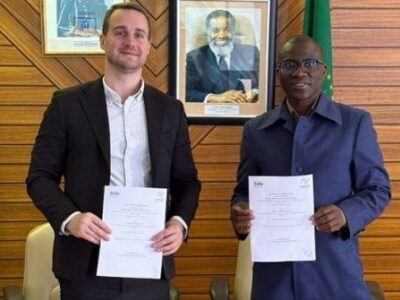
(Ecofin Agency) – Zambia has faced significant tensions with mining investors between 2019 and 2021, resulting in blocked investments and a drop in copper production to 700,000 tonnes in 2023. With an ambitious goal of producing 3 million tonnes of copper by 2031, fostering a stable business environment is essential.
On September 20, the Zambian government convened a working session with the Chamber of Mines to discuss a new mining code under review by the Parliament. This meeting follows criticism from the mining association regarding what they describe as “unrealistic” provisions in the proposed legislation.
Indeed, the Zambia Chamber of Mines (ZCM) has raised concerns that the bill grants arbitrary powers to the mining regulator and mandates a minimum 30% state shareholding in copper projects, which they argue could deter investment.
In a joint statement by the chamber board and council, the Chamber said the mining industry has been confronted with a raft of mining policy initiatives, which amount to an unprecedented threat to investors.
The ZCM said if the Zambian government does not go back to the drawing board on these proposals, it risks undoing all the good work achieved since 2021 in attracting mining investment to the country.
This situation is not unprecedented; previous disputes between the government and mining investors have occurred. Under former President Edgar Lungu, a reform of mining taxes led to the blocking of over a billion dollars in projects and a decline in production. However, upon taking office in 2021, President Hakainde Hichilema adopted a more conciliatory approach, facilitating project relaunches and attracting new investors.
Canada’s Barrick Gold and First Quantum Minerals, China’s CNMC and UAE’s International Resources Holding have announced multi-billion dollar investments that should boost the country’s copper production. These investments should support the Zambian government’s ambition to produce 3 million tonnes of copper by 2031, up from 700,000 tonnes in 2023. To ensure these investments continue, both parties are committed to ongoing dialogue to reach an amicable agreement on proposed reforms.
Emiliano Tossou









Comments